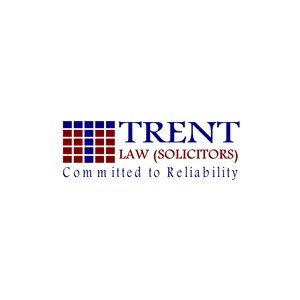Best Franchising Lawyers in Sheffield
Share your needs with us, get contacted by law firms.
Free. Takes 2 min.
List of the best lawyers in Sheffield, United Kingdom
About Franchising Law in Sheffield, United Kingdom:
Franchising law in Sheffield, United Kingdom falls under the broader umbrella of UK law and further regulated by the European Union law. It regulates the relationship between the franchisor, who lends the trademark and business system, and the franchisee, who runs a business under the franchisor's name. There is, notably, no specific franchising legislation in the UK, and the relationship is principally governed via the terms of the franchise agreement which the parties enter into.
Why You May Need a Lawyer:
Given the complexities of franchising law, you may need a lawyer to draft or review your franchise agreements, seek advice on rights and obligations as a franchisee or franchisor, navigate the disputes that may emerge in the course of the franchise agreement, or ensure compliance with applicable rules and regulations. A lawyer can also provide guidance in franchising litigation and negotiation processes.
Local Laws Overview:
The local laws that particularly pertain to franchising in Sheffield are the same as those throughout the UK. Key aspects include intellectual property law to protect the franchisor's brand and trademark; commercial laws that extend over terms and conditions, leasing and permissions; data protection regulations to ensure the handling of personal information is done appropriately, and competition law to prevent anti-competitive behaviours. Adherence to employment law may also be crucial if the franchise involves hiring staff.
Frequently Asked Questions:
What rights do I have as a franchisee in Sheffield?
As a franchisee in Sheffield, you have rights defined by the terms of your franchise agreement, including the right to use the franchisor's brand and operating systems, and benefit from ongoing support and training.
Can I sell my franchise?
Most franchise agreements include provisions for selling your franchise business, subject to the franchisor's approval.
What regulations do I need to adhere to when starting a franchise?
You'll need to comply with UK and EU regulations covering business operations, including, but not limited to, intellectual property, data protection, and competition laws. Employment laws may also apply if you plan to hire staff.
What is the role of a franchising lawyer?
A franchising lawyer assists in all legal matters relating to the franchise agreement, including drafting or reviewing the agreement, advising on rights and obligations, assisting in case of any disputes, or compliance with applicable law.
What are the grounds for terminating a franchise agreement in Sheffield?
Termination generally happens based on the terms specified in the franchise agreement. Common reasons for termination include breach of contract, non-payment of fees, or failure to meet agreed standards.
Additional Resources:
The British Franchise Association (BFA) is a key resource for those looking into franchising. The Information Commissioner's Office (ICO) helps with data protection laws, whilst the UK Intellectual Property Office deals with trademarks and intellectual property.
Next Steps:
Before diving into franchising, it's advised to speak with a legal professional experienced in franchising law. Preparation of comprehensive franchise agreements is a delicate process that requires expertise. Using templates or standard contracts is not recommended, as the value of such contracts lies in the specifics they contain. Ensure to adequately research and take appropriate legal advice to protect your interests.
Lawzana helps you find the best lawyers and law firms in Sheffield through a curated and pre-screened list of qualified legal professionals. Our platform offers rankings and detailed profiles of attorneys and law firms, allowing you to compare based on practice areas, including Franchising, experience, and client feedback.
Each profile includes a description of the firm's areas of practice, client reviews, team members and partners, year of establishment, spoken languages, office locations, contact information, social media presence, and any published articles or resources. Most firms on our platform speak English and are experienced in both local and international legal matters.
Get a quote from top-rated law firms in Sheffield, United Kingdom — quickly, securely, and without unnecessary hassle.
Disclaimer:
The information provided on this page is for general informational purposes only and does not constitute legal advice. While we strive to ensure the accuracy and relevance of the content, legal information may change over time, and interpretations of the law can vary. You should always consult with a qualified legal professional for advice specific to your situation.
We disclaim all liability for actions taken or not taken based on the content of this page. If you believe any information is incorrect or outdated, please contact us, and we will review and update it where appropriate.












